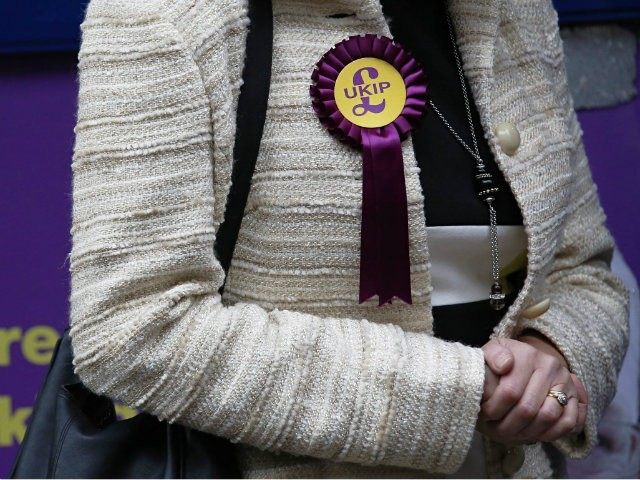It’s no secret that UKIP hopes for a major breakthrough at the general election, launching a professional, independently-costed manifesto this morning to that end. But as the party moves from being a right wing fringe group to take centre stage on the national political scene, tensions between the libertarian right of the party and the newer left wing, most of whom joined as the party attempted to reach out to Labour voters, have been simmering beneath the surface.
The manifesto tries to balance off these opposing points of view, with greater and lesser success. Here’s a roundup of the policy highs and lows that it hits.
Ukip’s Best Five Policies…
There’s a lot of good stuff to pick from here, from beating Osborne at his own party game by abolishing inheritance tax entirely, to the obvious leaving the EU. Raising the defence budget to meet NATO commitments and expanding the army back to 2010 levels is also highly laudable, as is the Carswell-inspired stuff on bring accountability to the political process. So this is really the best of the best:
- Getting rid of all the climate change nonsense. Ok, so this isn’t a single pledge, but there’s too much good stuff here to leave any of it out. The party’s Energy Spokesman Roger Helmer is quoted as saying “The three old parties collude to reinforce failing energy policies that will do nothing to reduce global emissions, but which will bring hardship to British families. Their ‘green’ agenda does not make them friends of the earth; it makes them enemies of the people.” UKIP plan to invest in coal, scrap subsidies for wind and solar energy, get fracking, and repeal the costly Climate Change Act 2008, freeing the UK from renewables targets.
- “Abolishing government departments when their essential powers and functions can be merged into other departments. Such departments will include the Department for Energy and Climate Change, the Department for International Development, and the Department for Culture, Media and Sport.” A number of quangos, constituencies, “fake charities” and government advisors are also getting the chop, bringing down the cost of politics.
- “Oppose calls for minimum pricing for alcohol and reverse plain packaging legislation for tobacco products.” Ukip’s pledges to roll back the nanny state are a strong differentiating factor from the other party’s manifestos, hardly surprising considering their leader is almost never seen without a pint or cigarette in his hand. They also plan to amend the smoking ban to give pubs a choice on whether to provide ventilated smoking rooms.
- “Bring back grammar schools and support a range of secondary schools including vocational, technical and specialist schools.” Under Thatcher the Tories were the party of opportunity, but Cameron now wants to be the party that will look after you from cradle to grave. That means kicking decisions on a new grammar school in Kent into the long grass, and ruling out allowing them elsewhere. Ukip knows better: grammar schools aid social mobility, which is good for everyone.
- “Scrap HS2: this is an expensive, politically-driven vanity project for which there is no good business case. It will blight our countryside and not solve the problem of capacity.” By “expensive” they mean £50 billion at current estimates (and the estimates keep rising).
… and their five worst
- “UKIP is fully committed to keeping the NHS free at the point of delivery and at time of need for UK citizens.” UKIP’s most disappointing policies come where the party feels it has to play the Westminster game in order to be credible. The party used to have a health voucher policy, allowing those who dislike the state service to opt out of it whilst recognising that many like the system and want to keep it. That policy should be reinstated.
- “Ensure big corporations pay their fair share of tax” Sympathetic UKIPers may wish to argue that this means an end to corporatism, but the language adopted in the manifesto sounds like something the Greens might say: “It is grossly unfair that a few multi-national corporations have been able to access all the benefits of our thriving British consumer market without making a proper contribution to the costs of British society.” Businesses already make a proper contribution to society: they create jobs and sell goods at a reasonable price.
- “Keep the current free bus pass, winter fuel allowance, free TV licence and free prescriptions and eye test schemes for all pensioners, without means testing.” Because taxes taken from the poorest in society should pay for the bus passes of the richest?
- “Enforce the minimum wage” UKIP’s economics spokesman Patrick O’Flynn caused a stir at the party’s spring conference when he suggested a ‘wag tax’ on premium goods (a policy quickly disowned by Farage), so perhaps it’s no surprise that many of the worst policies come in the economics brief.
- “End unfair ATOS-style work capability assessments and return the system and funding to GPs” This is an example of UKIP buying into the left wing media narrative. Today it was reported that a third of GPs are planning to retire thanks to the stress of being overworked; adding to their workload is unlikely to help the matter. More crucially, a person with a chronic illness may be a regular at their local GP’s office; naturally that GP is going to see that person’s disability first and foremost. It sometimes takes a fresh pair of eyes to assess what a person can do. There’s no doubt that mistakes were made by ATOS, but a service dedicated to helping disabled people find out what they are capable of, and to helping them to do it, is no bad thing.

COMMENTS
Please let us know if you're having issues with commenting.